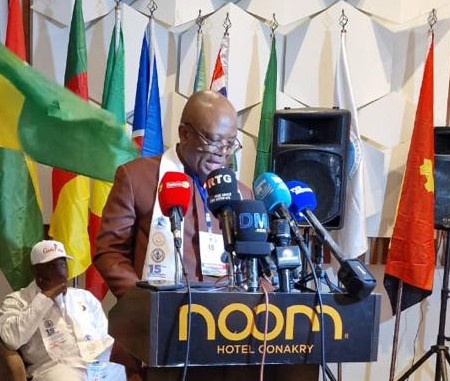
The Secretary General of the Abuja MoU, which is the Memorandum of Understanding on Port State Control for the West and Central African Region, Captain Sunday Umoren has disclosed that in the region, out of 20,499 ship calls in 2024, only 3,204 inspections were carried out, with an inspection rate of 15.6% .
Captain Umoren who made this known at the 15th Port State Control Committee Meeting, themed “Strengthening Port State Control Enforcement: The Vital Role of Policymakers in Unlocking the Full Potential of the Blue Economy” in Conakry, Republic of Guinea on 6th October 2025 explained that while this is commendable, it should be considered as the minimum because if the coasts, the ports, and the people are to be protected, the bar must be raised. He urged every Member State to make the conduct of inspections and upload of reports into AMIS a non-negotiable priority.
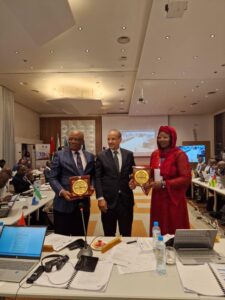
He also encouraged delegates at the meeting that looking forward, they must not be ignorant of the new maritime frontier: decarbonization, digitalisation, cyber-resilience, and seafarer-centred policies. He asked members of the committee if they are prepared for MASS vessels, remote Inspections and ready to move up the ladder to be amongst the Top Quartile MOU in the world.
The Abuja MoU SG recalled that West and Central African Region Ports State Control once again confronted the human element of maritime labour challenges, where over 3,000 seafarers were abandoned on ships around the world. According to him, while IMO stands strongly and united against crimes, it has noted that seafarers have also been so badly treated leading to the adoption of a new guideline ‘ Guidelines on fair treatment of seafarers detained in connection with alleged crimes’.He called on member states to designate seafarers as key workers.
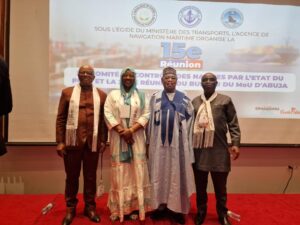
He emphasised that in 2024, member states witnessed heightened geopolitical tensions, with shadow fleets disabling AIS and slipping through international monitoring systems, threatening safety and transparency.
Captain Umoren recalled that amidst the happenings in the maritime world in 2024, the Secretariat, through the cooperation of member states, successfully organised the Abuja MoU statutory meetings, from the 14th ISMWG into the 14th PSCC and 4th Ministerial Conference in Brazzaville, wherein several strategic decisions were made. In addition to the national and regional training facilitated by the Secretariat in 2024 ,he said the MoU also received support and sponsorship for some training from the MACN, ILO, ABS, and other partners.
He delightfully announced that Angola, which benefited from the national training conducted in 2024, officially began the conduct and upload of PSC inspection to the Abuja MoU Information System (AMIS) database this year. He said this remarkable step by Angola symbolises the spirit of progress and commitment to collective determination to leave no State behind as well as bringing member states a step closer to harmonization of PSC procedures throughout the region. Umoren promised that by next year, the Republic of Nambia will become a member state.
Captain Umoren reiterated that strengthening Port State Control (PSC) enforcement is pivotal to unlocking the vast potential of the Blue Economy in West and Central Africa as effective PSC ensures safer, cleaner, and more efficient maritime operations, protecting our marine environment while boosting trade competitiveness. However, he said this can only be achieved through strong policy leadership.
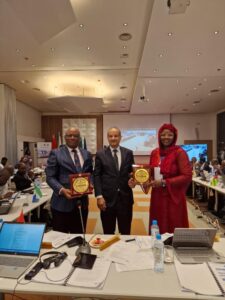
“The integrity and reliability of our system depend on the conduct of inspections, as masters of inspected vessels, PSCOs within and outside our region and other stakeholders rely on it. Let us remember that every decision we take, every inspection we record, has a ripple effect far beyond our shores.
“We must, through our mandate, protect and support seafarers, as they are one of the lifeblood of trade, and essential workers who ensure that our food, clothing and other items reach our homes. The year 2024 was a year of both turbulence and transformation, just as the world was bouncing back from the onslaught of COVID-19. The only good thing that came out of COVID was the designation of SEA-FARERS as essential / key workers. .

“Our trainings were not just technical exercises; they instilled the need for integrity, professionalism and accountability during PSC inspection, the need to protect seafarers and the proper conduct of PSC inspection, to ensure no substandard ship escapes inspection due to corruption or neglect. We take capacity building / capacity development very seriously and thus have signed an MOU with maritime training institutions (MTIS) to ensure that trainings on PSC is conducted in our region.
“Policymakers must provide the legal, institutional, and financial frameworks that empower inspectors, enhance regional cooperation, and ensure compliance with international standards. By prioritizing PSC enforcement, we secure not only our waters but also sustainable economic growth, maritime safety, and prosperity for our region’s present and future generations.”,he said.






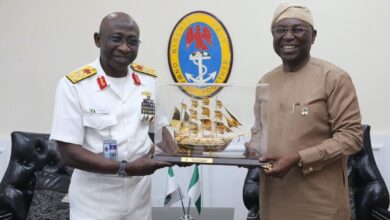
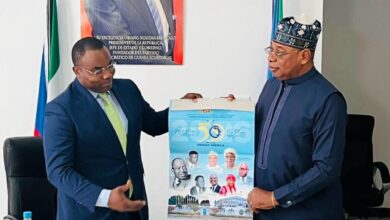
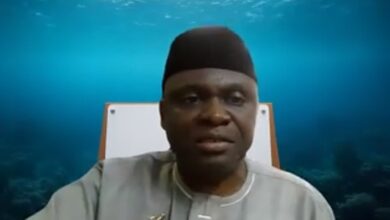
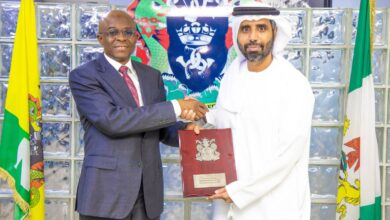

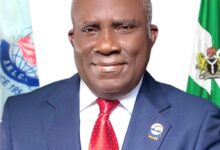
One Comment